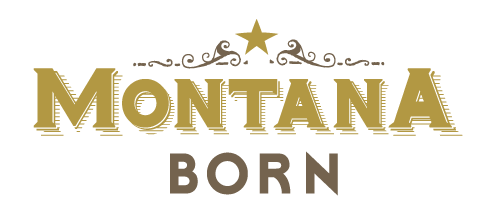Start reading this book:

Share This Excerpt
Prologue
It is a truth universally acknowledged that, when it comes to their children’s happiness, mothers know best. And when the mothers come equipped with a PhD in genetics in one case, and a PhD and years of experience in anthropological fieldwork in the other, the truth has considerable clout.
So when Madeleine Frances Decker was born on that bright summer day twenty-six years ago, her future was all but decided.
Her mother, Antonia, knew precisely what her best friend, Julia Richardson, would say upon hearing the news.
“It’s perfect. I told you you’d have a girl. You had to.” Julia rubbed her hands together gleefully as she looked down at the tiny girl child nestled in Antonia’s arms. “She’s lovely. Whichever one she picks, they’ll have beautiful, healthy, intelligent babies.”
“It’s hard to imagine her having babies,” Antonia said softly, “when she’s only seven hours old herself.”
“Yes,” Julia said. “But it will be wonderful. You said that yourself.”
“I know, but—”
“And it’s not as if we’ll be pushing her toward any one of them,” she added conscientiously. “She can have her choice.”
Of husbands, Julia meant, for she was herself the mother of the four sons she and Antonia had decided that, in time, the unsuspecting Madeleine would be able to pick from.
Madeleine, of course, knew nothing of this arrangement for years. Neither did the prospective husbands: Channing, Gardner, Mark, and Trevor Richardson.
There was no point in telling them beforetimes. Children, Antonia and Julia agreed, couldn’t be counted on to act rationally about serious matters like this. In fact, they could be expected to rebel, a fact which both Antonia and Julia well knew.
There would be time enough, they decided, to inform their respective children when they were older. They would understand better when they were past the childish follies of first loves and adolescent crushes, and so able at last to fully appreciate the scientific, genetic, and cultural basis for their mothers’ infinite wisdom.
Then, and only then, would they be told, and Madeleine could make her choice.
At least, that was the plan.
But when Madeleine was only fifteen, Gard Richardson narrowed her choices by marrying Emily Keane a month after his high school graduation.
Julia apologized to her friend. “But I could hardly tell him not to. He’s eighteen. He loves her. And,” she added ruefully, “there’s a baby on the way.”
“Madeleine probably wouldn’t have wanted Gard, anyway,” Antonia said philosophically.
“Probably not. Besides, she still has three to pick from,” Julia agreed.
Or she did have until five years later, when Mark joined the navy, went to Australia, and, the next thing Julia knew, married a pretty redhead named Kelly Fraser.
“I didn’t even know until after he’d done it,” Julia called to tell Antonia in dismay. “He phoned us from Perth, for goodness’ sake, and said, ‘Guess what, Mom? I’m married!’ I mean, really!” It was the most offended Antonia had ever heard her.
“Don’t fret,” Antonia said soothingly. “There’re still Chan and Trevor.”
Julia sighed. “That’s true.”
And the thought of Antonia’s Madeleine and her Trevor made her muster her optimism and a smile. The optimism and the smile had lasted until this past December, when Trevor called his parents from Boston and announced his engagement to Sarah Boone.
“You won’t believe this,” Julia told Antonia without preamble. “He’s given her a diamond. They’re marrying in February. On Valentine’s Day, would you believe? I never thought Trev would indulge in such romanticism. I really,” she confided wistfully, “always thought Trevor was the one. I mean, he and Madeleine both have so much in common. They’re both scholarly and intellectual. They’re both PhD candidates at top graduate schools.”
“Yes, well, it can’t be helped,” Antonia said. “And there’s always Chan.”
“Yes,” Julia said slowly, “there’s always Chan.”
Neither of them had deemed Channing Richardson a serious candidate for Madeleine’s husband in years.
Julia considered the possibility now. If she hadn’t believed in her research so thoroughly, she would have quailed at the thought of her eldest son marrying Antonia’s only daughter. Never, not even in her wildest dreams, had she linked Madeleine and Chan. She didn’t imagine anyone else had, either.
Still, she reminded herself, genetics didn’t lie. Chan and Madeleine should have just as good a chance of having wonderful, talented, healthy, strong babies as Madeleine and any of her other sons would have had. And Antonia’s anthropological research provided substantial evidence that very often the best marriages were made for economic, social, and familial reasons, and not for anything so vague as that unpredictable thing called “love.”
Still—and here Julia couldn’t help shaking her head—Chan and Madeleine together?
It wasn’t going to be easy.
But really, now that she thought about it, it might be for the best. It might be the making of both of them, genetics and cultural determinism aside.
“Let us hope, at least,” she said drily, “that the old wives’ tale is true.”
“Which one is that?” Antonia asked.
“That opposites attract.”
End of Excerpt










